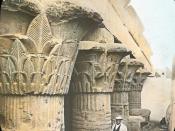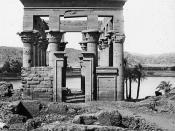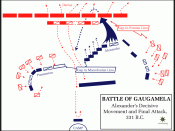Alexander III of Macedon, better known as Alexander the Great, single-handedly changed the entire nature of the ancient world in little more than ten years.
Born in the northern Greek kingdom of Macedonia in 356 BC, to Philip II and his wife Olympias, Alexander was educated by the philosopher Aristotle. Following his father's assassination in 336 BC, he inherited a powerful yet volatile kingdom, which he had to secure - along with the rest of the Greek city states - before he could set out to conquer the massive Persian Empire, in revenge for Persia's earlier attempts to conquer Greece.
Against overwhelming odds, he led his army to victories across the Persian
territories of Asia Minor, Syria and Egypt without incurring a single defeat. With his greatest victory at the Battle of Gaugamela, in what is now northern Iraq, in 331 BC, the young king of Macedonia, leader of the Greeks, Overlord of Asia Minor and Pharaoh of Egypt also became Great King of Persia at the age of 25.
Over the next eight years, in his capacity as king, commander, politician, scholar and explorer, Alexander led his army a further 11,000 miles, founding over 70 cities and creating an empire that stretched across three continents and covered some two million square miles.
The entire area from Greece in the west, north to the Danube, south into Egypt and as far east as the Indian Punjab, was linked together in a vast international network of trade and commerce. This was united by a common Greek language and culture, whilst the king himself adopted foreign customs in order to rule his millions of ethnically diverse subjects.
Primarily a soldier, Alexander was an acknowledged military genius who always led by example, although his belief in his own indestructibility meant he was...


